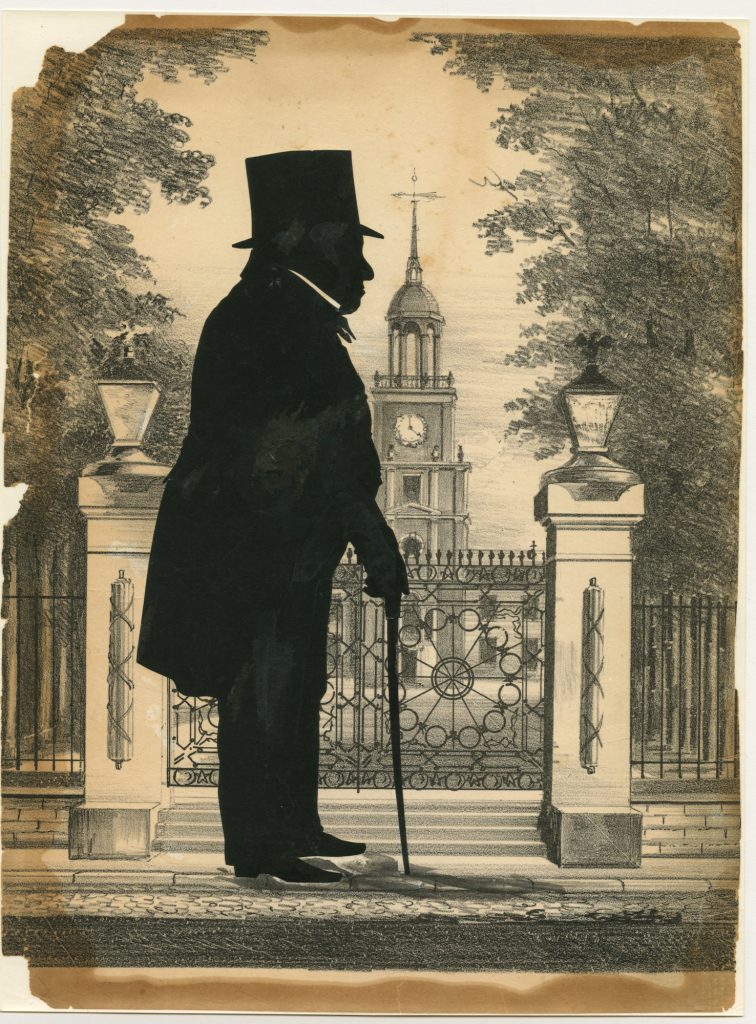John Moss was born in London on the first day of the year 1774, one of perhaps four children born Joseph L. Moss. Like his brothers Jacob and Samuel, John made his way to Philadelphia, arriving penniless at nineteen. Three years later, in 1797, he married Rebecca Lyons, and the couple had nine children, including Samuel and Merriem.
John’s brother Jacob became Philadelphia’s first Jewish bookseller and a purveyor of watercolor painting supplies. John got his start as a craftsman, presenting himself in Claypoole’s American Daily Advertiser as an engraver of glass in “a superb elegant and masterly style,” adding that, “merchants will find it conducive to their interest to have an engraving of something emblematical to their patriotic principles.” Moss believed he would find “succor in this city where the arts and sciences are in a flourishing state.” And indeed he did, opening a dry goods store in 1807, from which he soon began to import goods himself. By the 1820s, Moss had prospered into one of Philadelphia’s most successful importers, a shipping magnate with his own fleet, and later the director of several railroad companies, including the Pennsylvania Company, on which he served with Hyman Gratz.
Moss was involved in Freemasonry and became a member of the Saint George Society of Philadelphia, an organization dedicated to the “assistance of Englishmen in distress.” Despite continued involvement with the group, when the War of 1812 broke out, Moss not only contributed to funds for the defense of his adopted city, but enlisted as a private in the militia. He was also involved in Jewish life and contributed handsomely to Mikveh Israel.
His early experiences as a craftsman, certainly left a mark on Moss, and throughout his life he retained a finely honed aesthetic sensibility. His ships, for one, were known for their fine carvings, and Moss became an important patron of the arts. Moss imported two marble lions from Italy, copied from Canova’s sculptures at the tomb of Clement XIII in St Peter’s Basilica. He had the pair installed by the steps of the Merchant’s Exchange.
In 1823 Moss retired from active business, handing over control of the company to his brother Samuel. Although he continued to invest, and remained engaged with religious, cultural and civic institutions, it was politics that increasingly consumed Moss’ attention. Initially a Federal-Republican, but later a Jacksonian Democrat, Moss was elected Common Council in 1828. And when Greek independence became a cause célèbre, it was one of Moss’ ships, the Tontine, which sailed with provisions for the Greek rebels.
